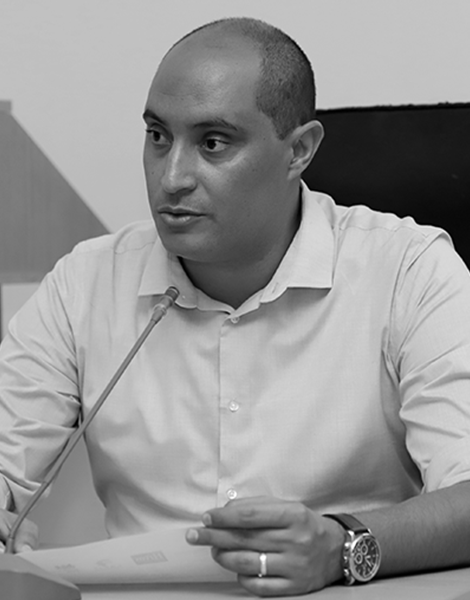Hamdi Hached has been interested in nature for as long as he can remember. Growing up in Tunisia, he would help his grandfather take care of his garden and pets; as a teenager, he was an avid reader of books and magazines about the environment. When he graduated high school, he had no doubt about his choice of university, and enrolled at the faculty of environmental sciences.
For his final dissertation, he focused on developing an alternative energy source through extracting biofuel from seaweed, sneaking into the laboratory at night to use more specialised equipment whose access was forbidden to students. After graduation, while unsuccessfully looking for funding for his research on biofuels, an unusual proposal came from Qatar: a TV station wanted Hamdi as a participant in an academic reality show for young Arab scientists. He did not win the show, but his appearance on TV helped him launch a career in environmental engineering between Qatar and Malaysia, until after a few years he returned to Tunisia, where he opened his own environmental consultancy.
Once back in his home country, Hamdi slowly pivoted from environmental engineering to climate journalism and activism. “I began to be more vocal about raising awareness of climate change and other environmental issues among the wider public,” he recalls. “I started cooperating with an environmental NGO, and then won a climate journalism competition, which allowed me to travel to Marrakech for COP 22.”
From environmental engineer to climate activist
Back then, Hamdi devoted most of his time writing and translating material about the environment in Arabic, as resources on the topic were scarce. He also started conducting training sessions and workshops for climate activists, and worked as a media consultant on environmental issues for a Tunisian TV station. He has now become one of the go-to experts on climate change and its effect in Tunisia, and is regularly invited to comment on the topic by TV channels and other media outlets.
His growing media experience led Hamdi to embark on a new project: a documentary on how people can get ready for environmental disasters caused by climate change, aptly titled ‘Be Prepared’. It was then followed by a second documentary, ‘The Last Fortress’, which investigated forest fires in Tunisia and the criminal organisations behind them. Its first screening was a huge success, gathering NGOs, experts, and politicians, including five ministers. The documentaries present shocking but accessible content, to make a non-expert public understand the gravity of the situation in Tunisia and elsewhere.
“As a scientist, I focused all my attention on the impact of climate change on nature, but I didn’t fully understand its implications on human beings and societies. Then I met people who suffer daily because of climate change, who are fighting for survival. So I shifted my perspective and I started adopting a different, more human-centered approach to the issue,” says Hamdi.
An EED-supported documentary on climate change
His latest documentary, ‘Under the Sun’, was produced in 2022 with EED’s support, and describes the impact of global warming in Tunisia. “I am grateful to EED because it’s hard to get a grant for such a project as an individual,” says Hamdi, “It’s my third documentary now, so this was an opportunity to raise production quality and engage more and more people in climate activism.”
Since last September, the documentary has been screened around Tunisia, accompanied by debates on global warming and climate change. It has gained traction both in the media and with the general public, and has prompted civil society organisations to amp up their efforts to raise awareness of climate change.
Hamdi admits that, although the general public is more and more interested in climate change, the topic is still not high enough on politicians’ agendas in Tunisia. “Unfortunately, the environment is still not a priority for the government. They think that investing in green energy is too expensive for a country like Tunisia.”
However, he is proud of having sparked a debate on environmental issues, and of having become a trustworthy, authoritative voice on the topic. He notes that the President of Tunisia shared two of his Facebook posts when discussing climate change, and that opposition politicians are using his documentaries for debates about the environment.
“They are slowly coming to an understanding that climate change can destroy our existence, and have started listening to us about the need to build a greener future for Tunisia.”
This article reflects the views of the grantee featured and does not necessarily represent the official opinion of the European Endowment for Democracy, the European Commission or any other European State or other contributors to EED.
